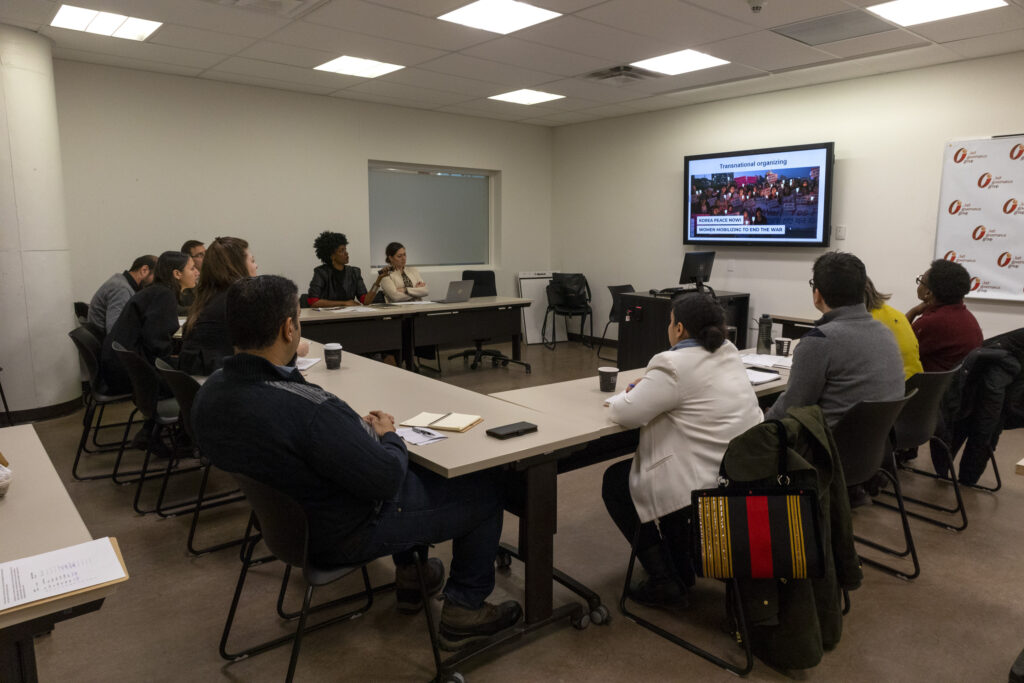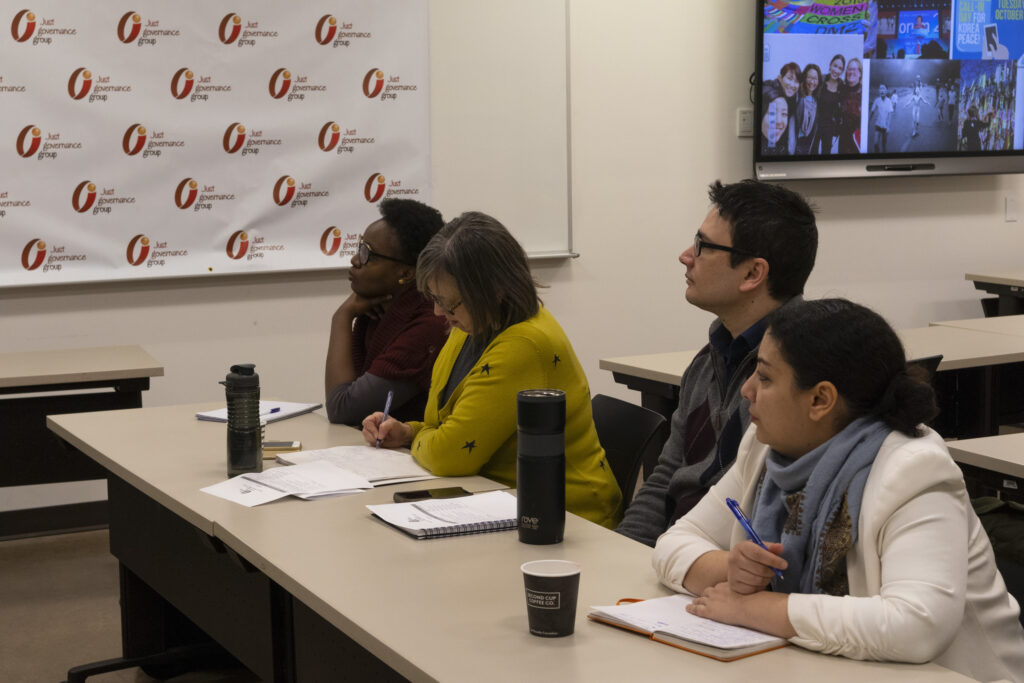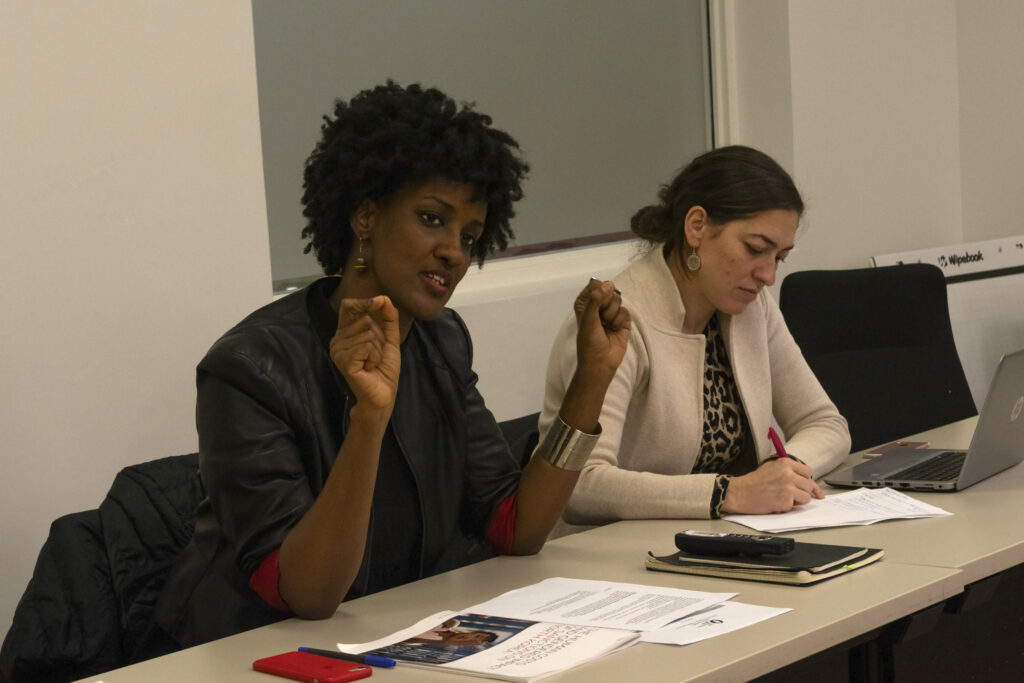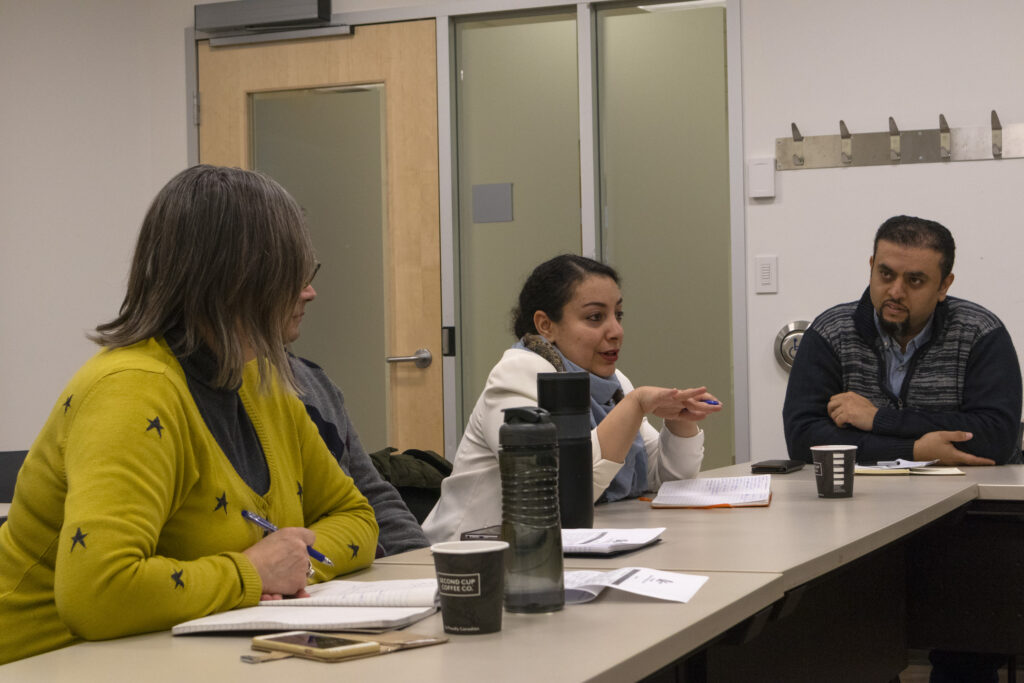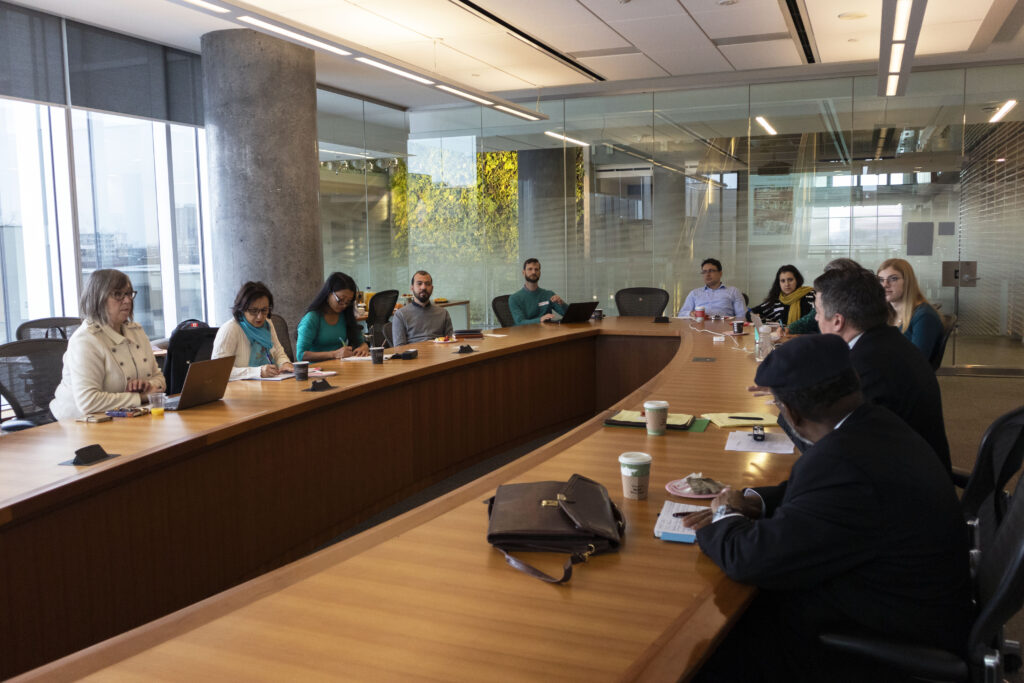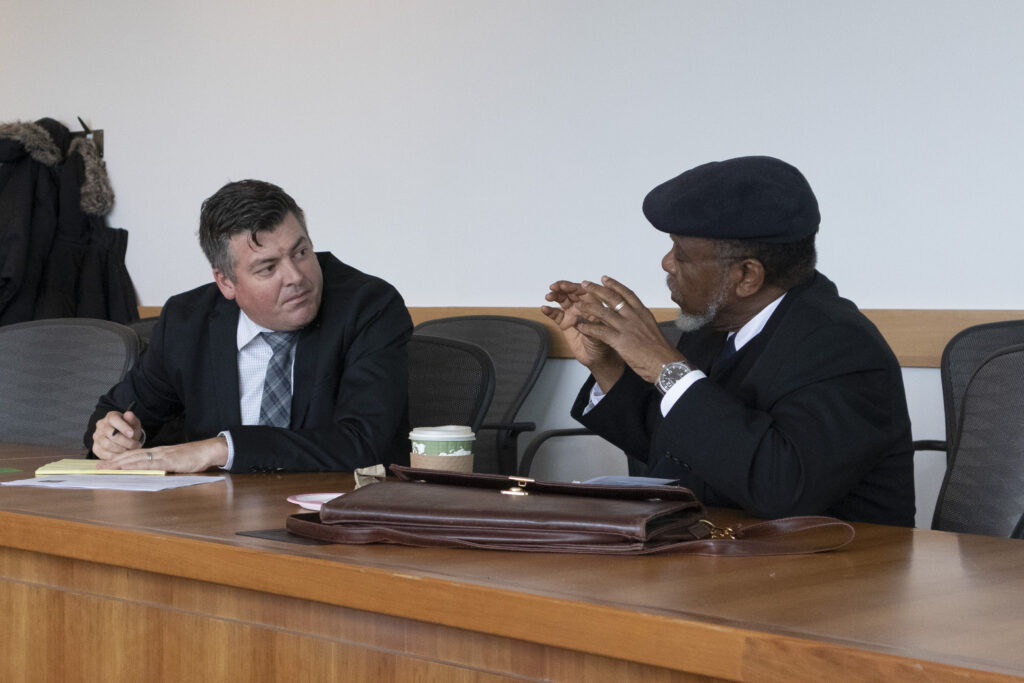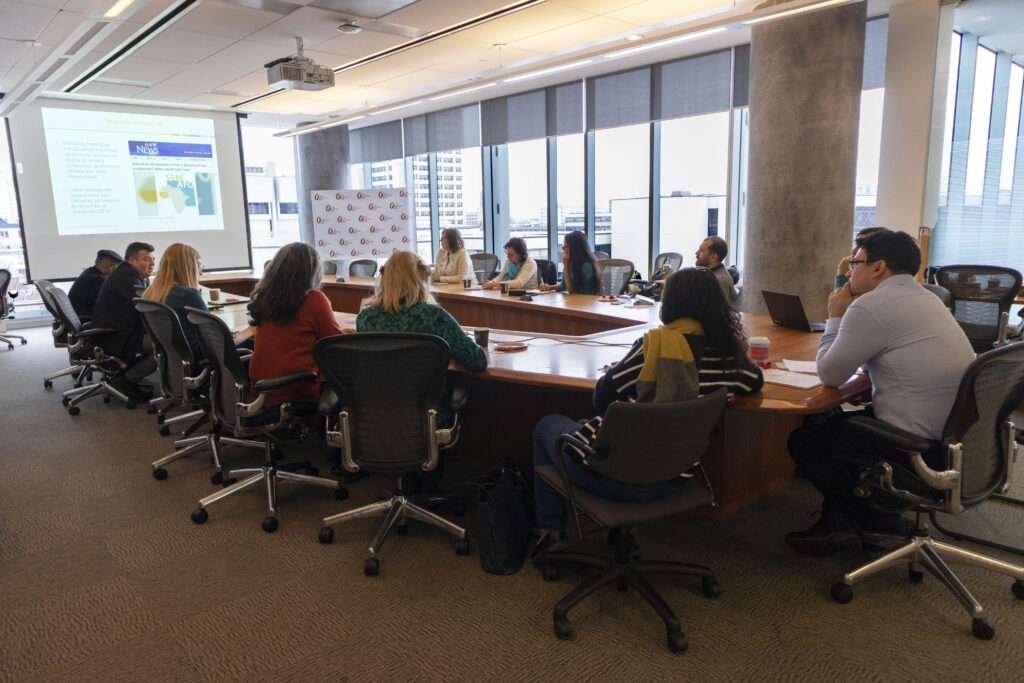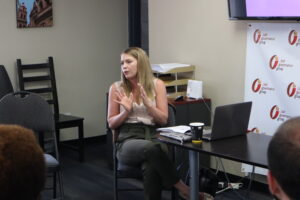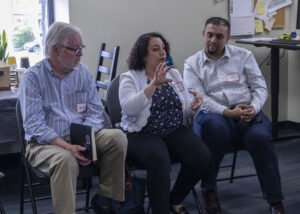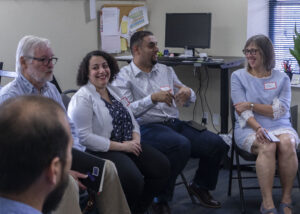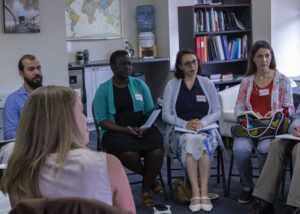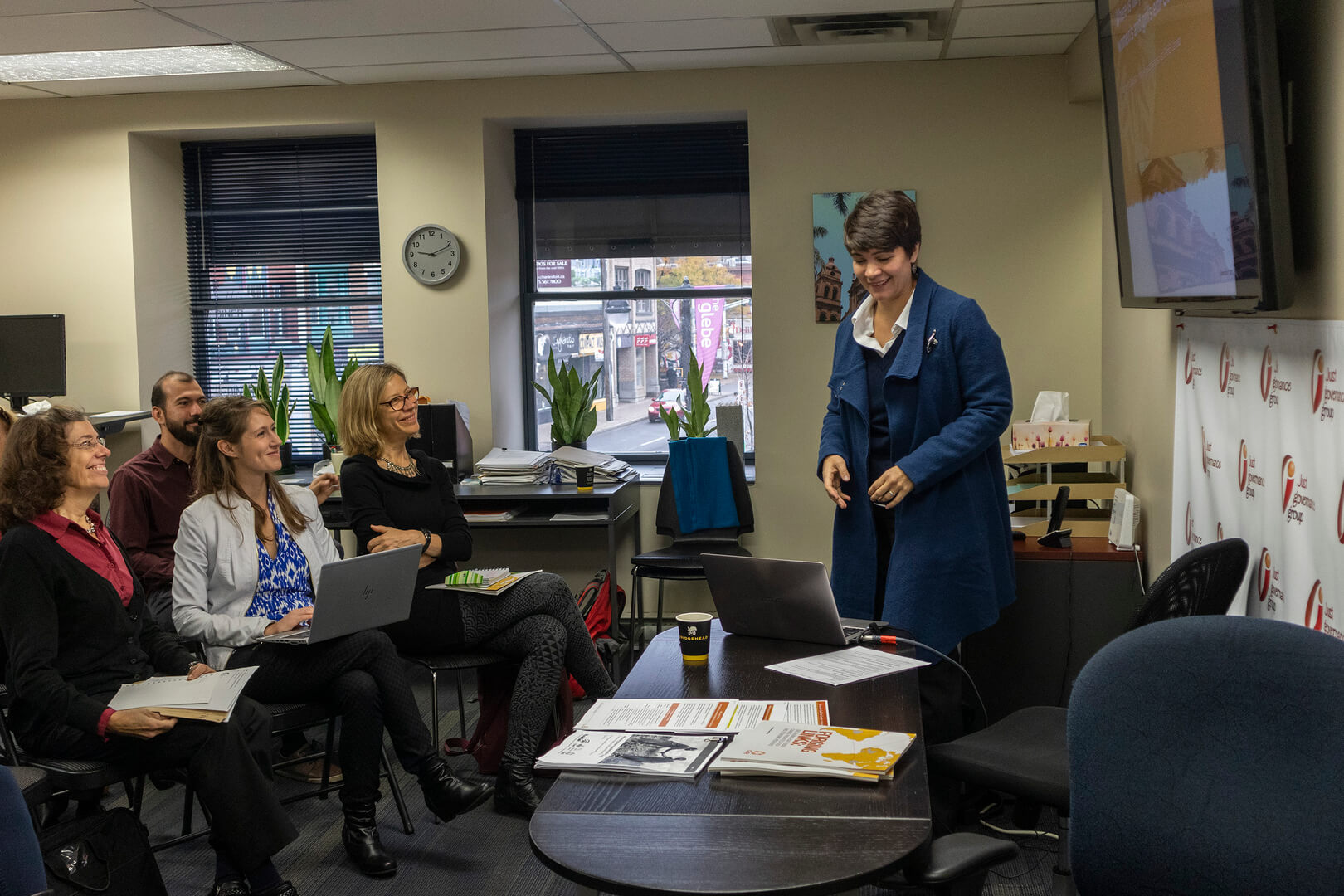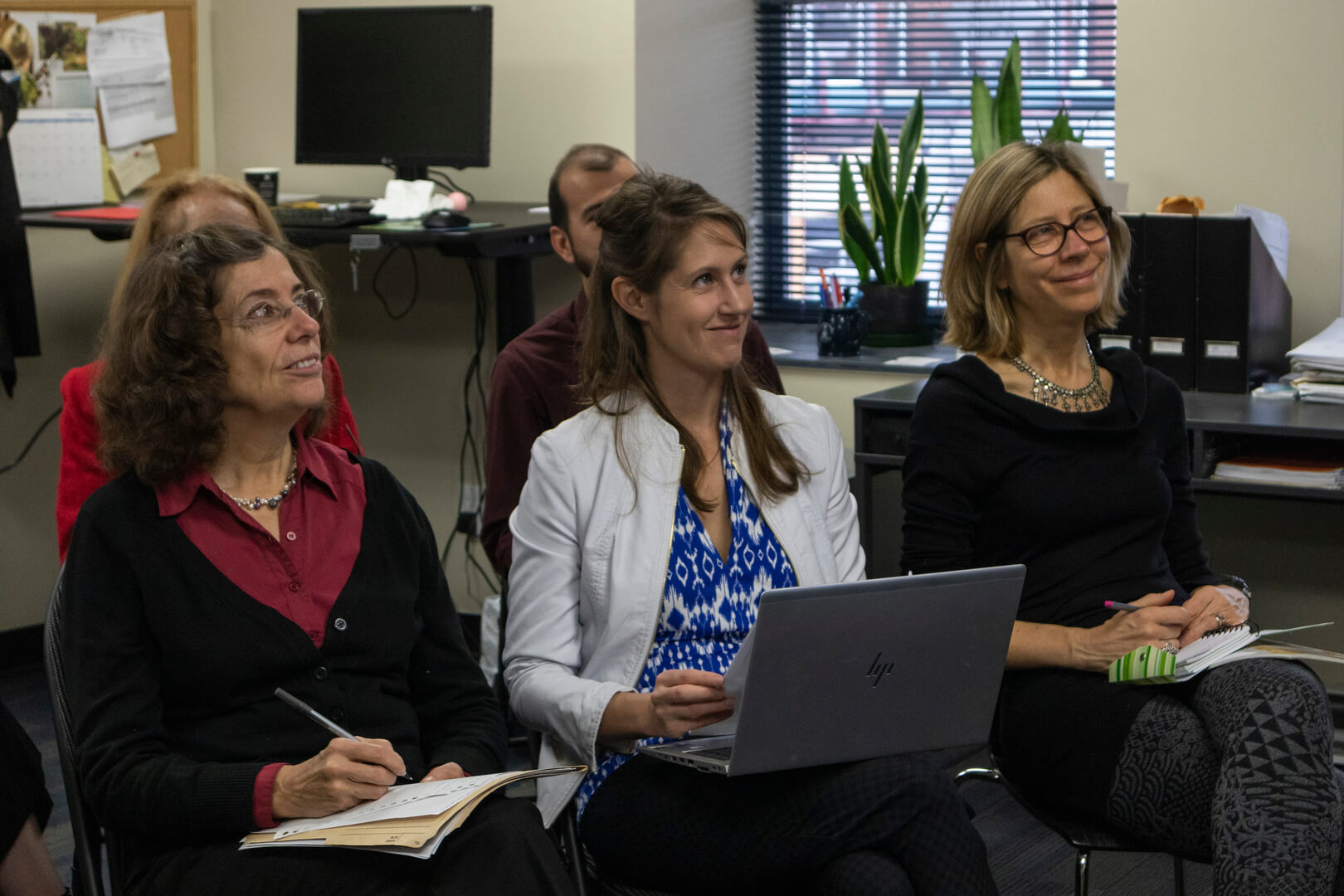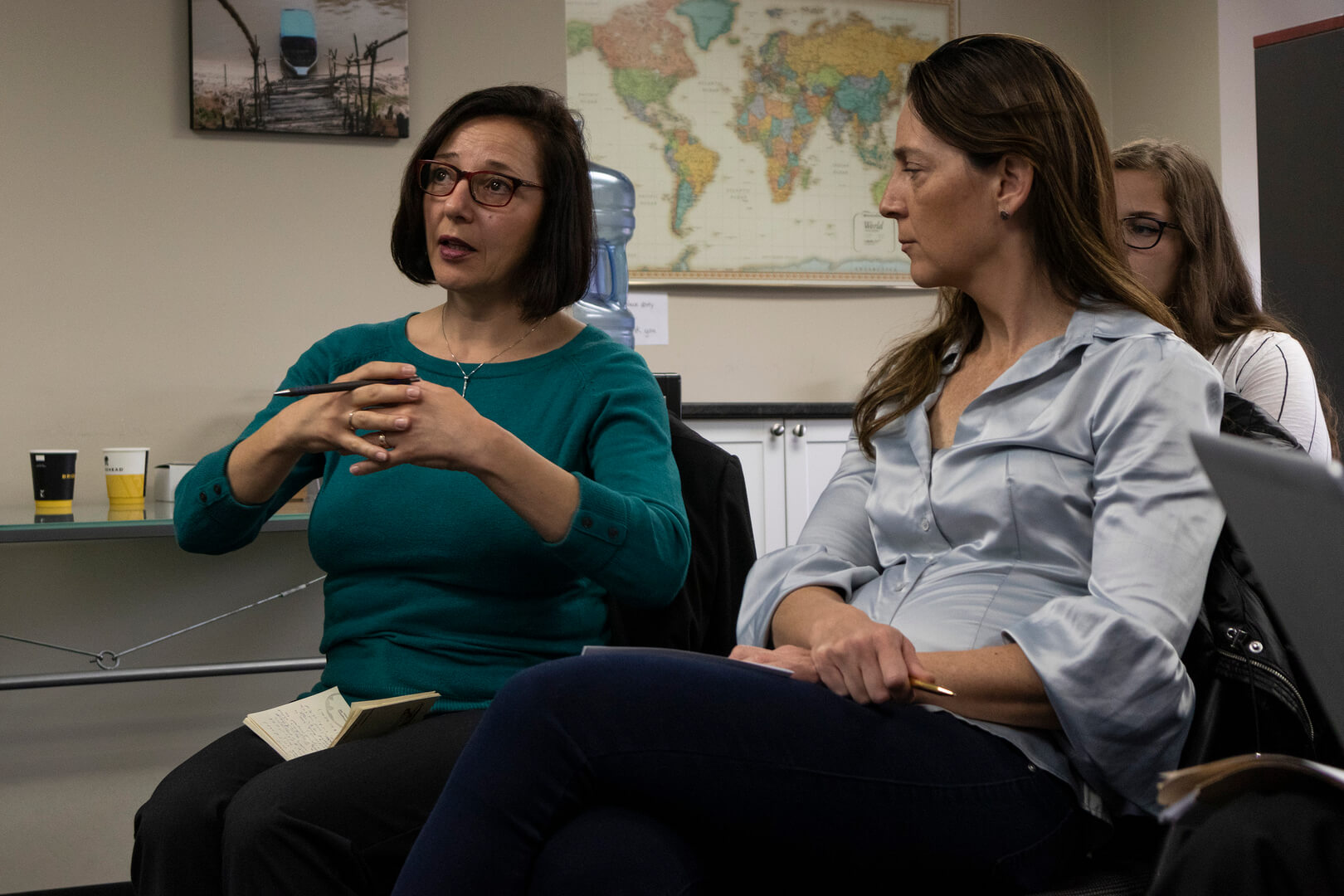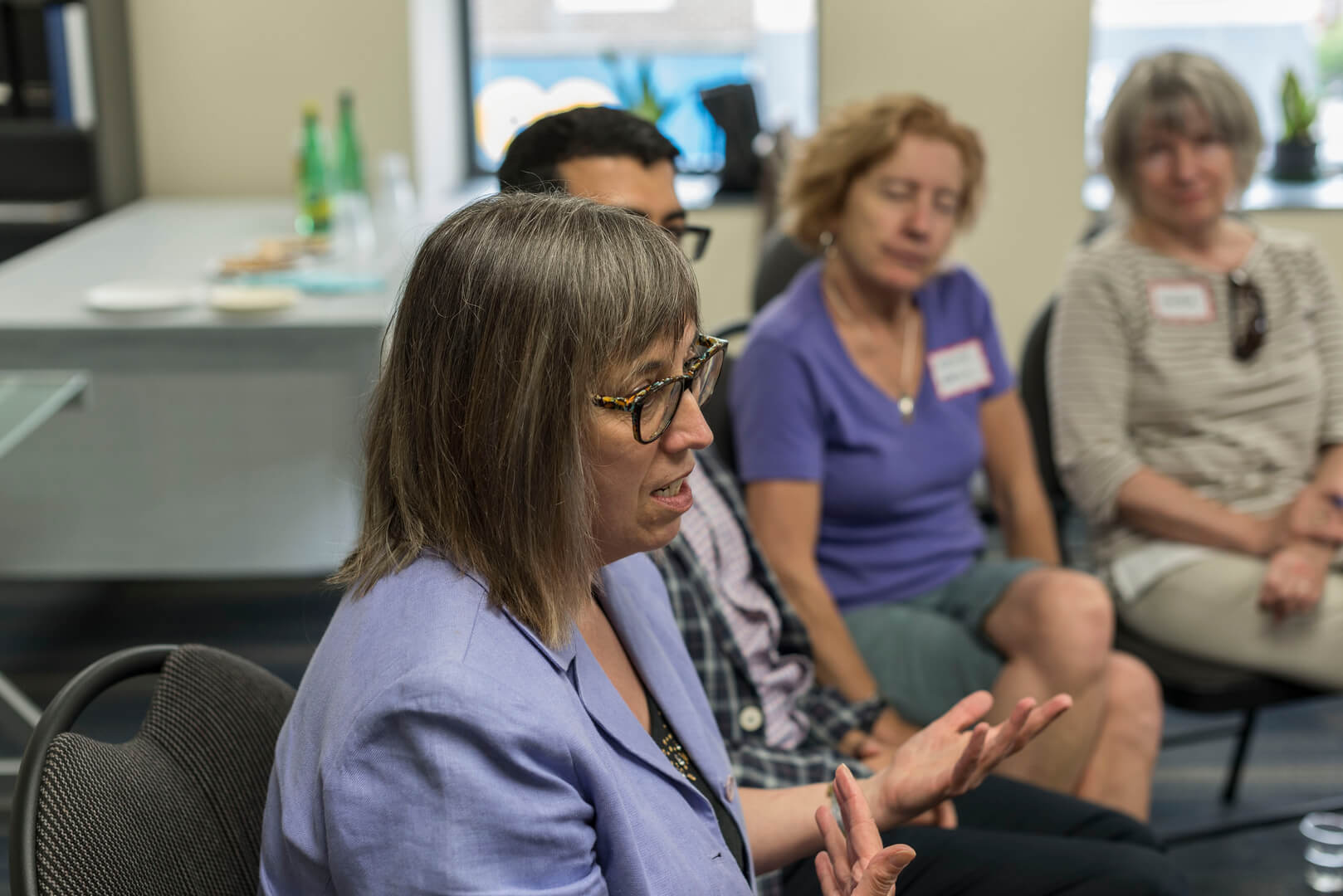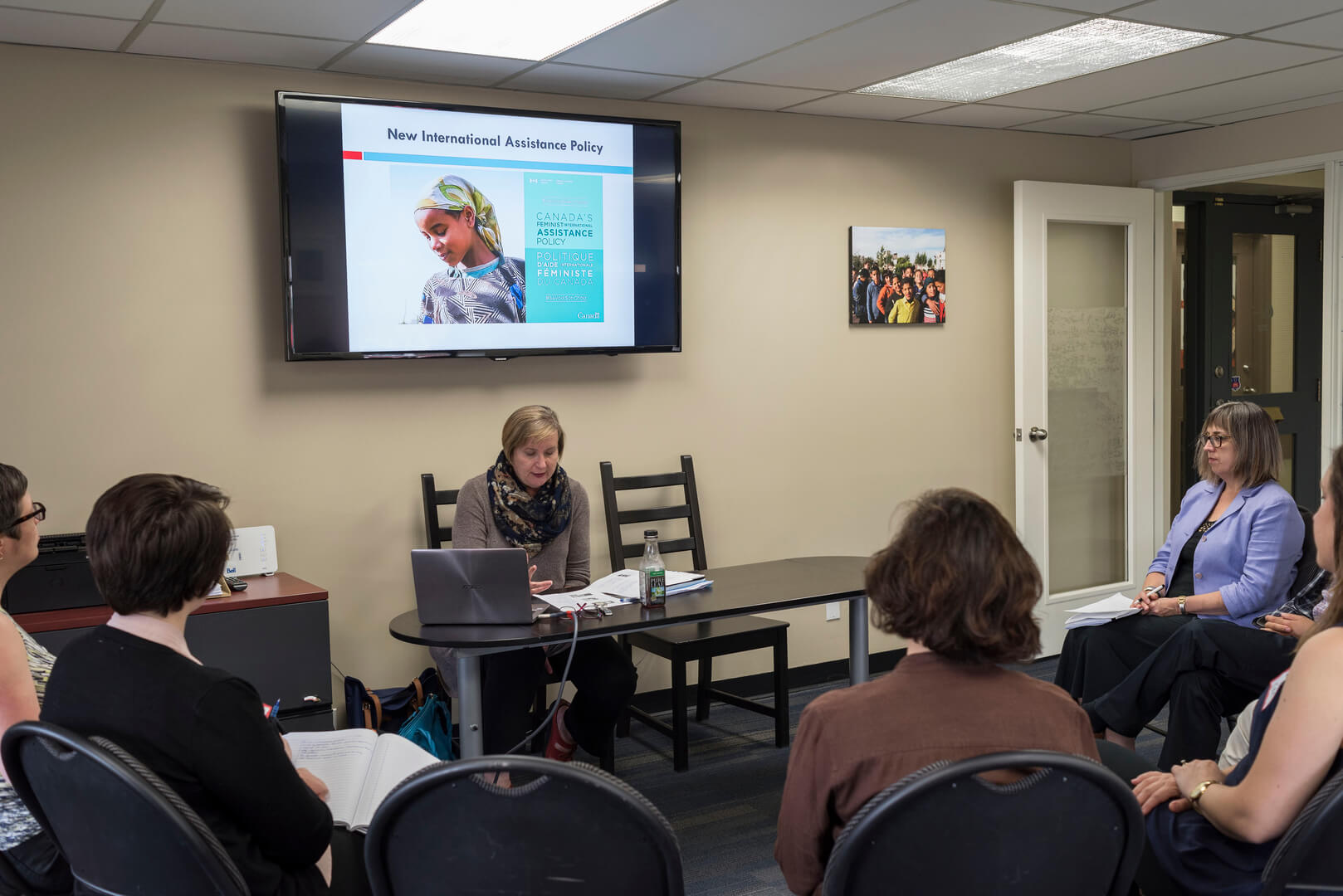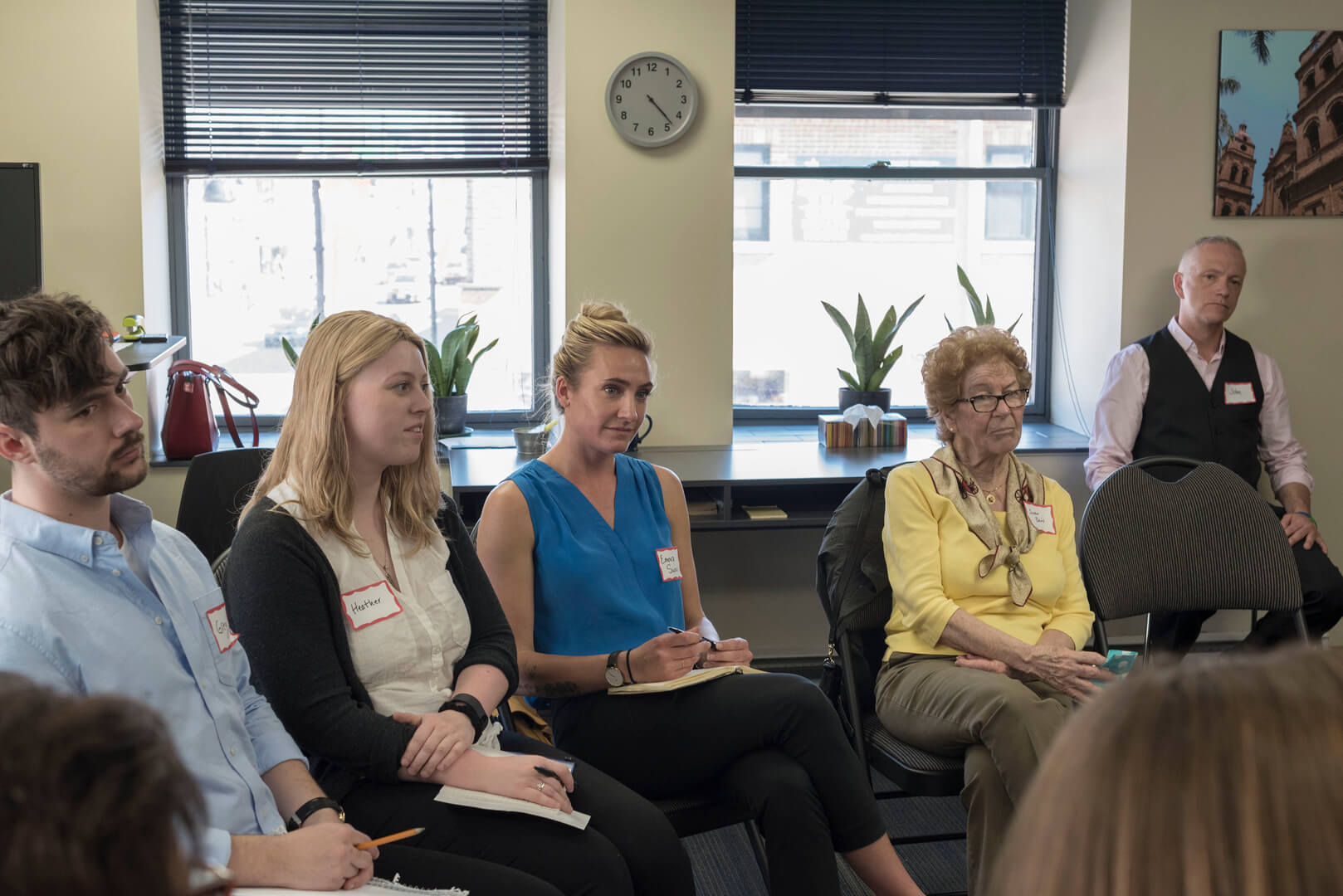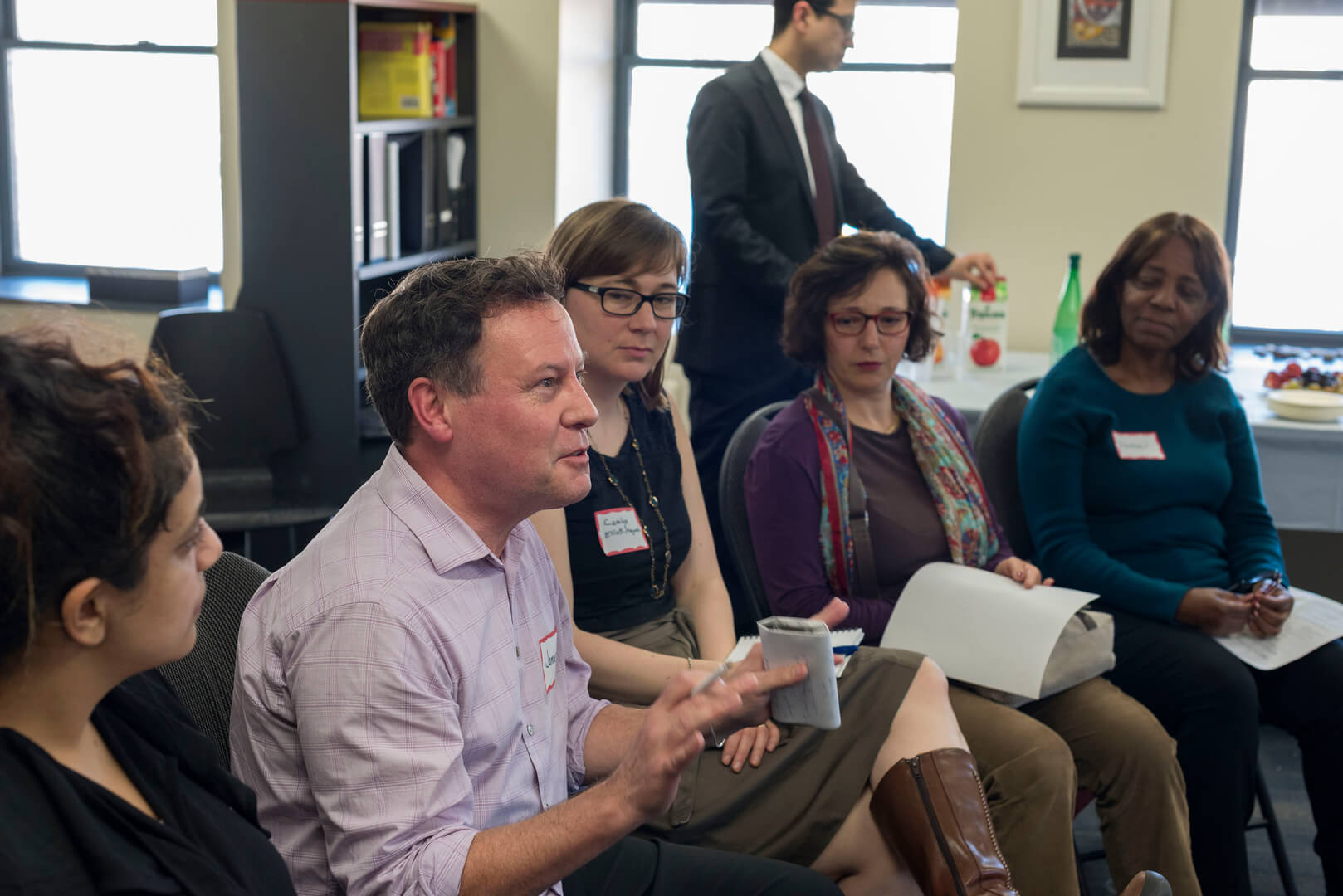Advancing Just Governance
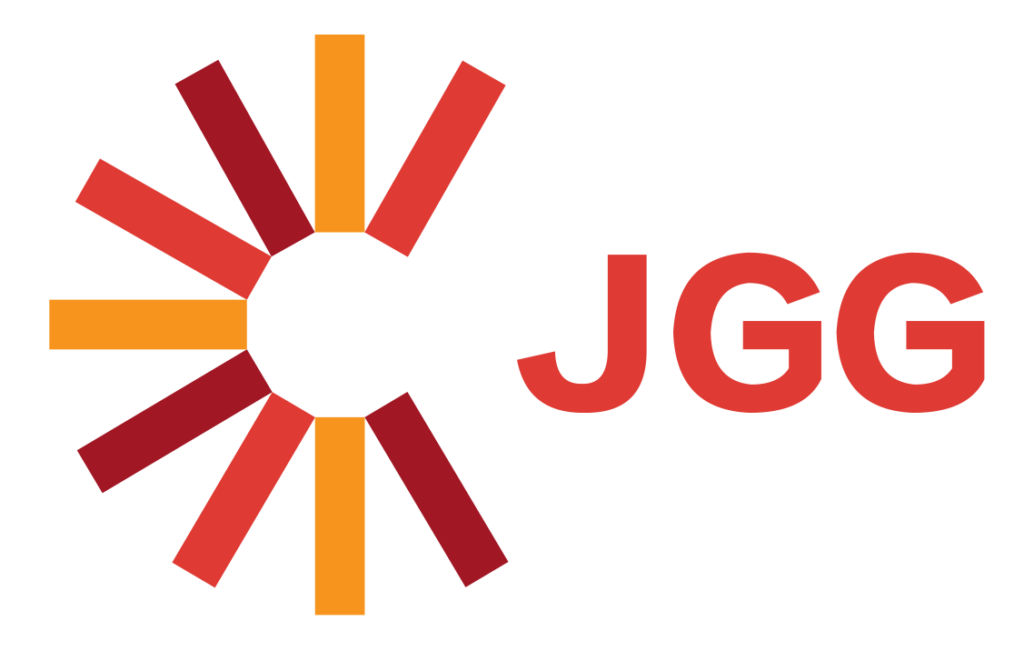
Knowledge Development and Exchange
JGG is a learning network. It seeks to promote knowledge development and exchange on thematic and development practice topics with the network's broader community of practice.
Following each consulting project, JGG records consultants’ observations on thematic issues and professional practice. The cumulative analysis of these provides the network with data for selecting topics for its learning activities and publications.
JGG also organizes learning events and co-implements knowledge-building activities with learning partners.
Multiples
Múltiples - an informative bulletin produced twice each year. The JGG network shares updates on the governance situation in its countries of focus, interviews with or opinions from governance experts, and links to resource materials on human rights, justice, democratic institutions, conflict and peace.
Our Latest Múltiples - Multiples 35: December 2023
- Multiples 34: December 2022/January 2023
- Multiples 33: With focus on Threats to Democracy
- Multiples 32: With focus on Land Rights
- Multiples 31: With focus on Colombia
- Múltiples 30: Violence Against Women
- Múltiples 29: Impacts of COVID-19
- Múltiples: 28 Elections and Democracy
- Múltiples 27 Corruption and other Governance Topics
- Múltiples 26: Governance Issues related to Land and Natural Resources Management
- Múltiples 25
- Múltiples 24
- Múltiples 23
- Múltiples 22: Transitional Justice
- Múltiples 21: Electoral Processes
- Múltiples 20: Justice for Women in Countries Affected by Conflict
- Múltiples 19: Economic Self Determination of Indigenous Peoples
- Múltiples 18: Peace Processes and Peacebuilding
- Múltiples 17: Freedom of Expression
- Múltiples 16: LGBT Rights
- Múltiples 15: Women, Peace and Security: Resolution 1325
- Múltiples 14: Indigenous Peoples’ Right to be Consulted
- Múltiples 13: Conflict Transformation
- Múltiples 12: Children, Youth and Violence
- Múltiples 11: International Day for the Elimination of Violence against Women
- Múltiples 10: Human Rights Issues at Borders
- Múltiples 9: Decentralized and Self Government
- Múltiples 8: Protecting Labour and Union Rights in a Global Economic Crisis
- Múltiples 7: Human Rights Institutions and Democracy
- Múltiples 6: Defining Legal Pluralism in Bolivia
- Múltiples 5: International Cooperation & Governance
- Múltiples 4: Interculturalism
- Múltiples 3: Social Networks for Justice
- Múltiples 2: Equality Rights and Community Justice
- Múltiples 1: Challenges for Human Rights Institutions in Latin America
Co-Praxis
Co-Praxis - a brief bulletin prepared by JGG core consultants once each year with research assistance by university interns. Research and reflections on good practices in development are shared with JGG’s broader learning community.
JGG EVENTS
JGG holds different events about two to three times a year. These events cover a number of topics on justice, human rights, foreign policy, and gender equality, to name a few. Click on the link below to learn about our previous roundtable events and when future events will be held.
NEXT ROUNDTABLE EVENT: TBA
PAST EVENTS
THE EFFECTS OF AUTHORITARIANISM AND POPULISM ON DEMOCRACY AND HUMAN RIGHTS
Featuring guest speakers Dr. Seema Shah, head of the Democracy Assessment Unit at International IDEA
On December 2, 2021, JGG held a roundtable on anti-democratic trends. Dr. Seema Shah, from International IDEA, who oversees the development of the Global State of Democracy (GSD) index for International IDEA, presented key findings from the 2021 GSD report. Elba Estrada and Zeynep Baser, part of the JGG Network, shared their experiences living and working in Central America and Turkey, respectively.
COMPLEX ELECTIONS AND COVID-19 LESSONS FROM BOLIVIA AND THE WORLD
Featuring guest speakers Ingrid Bicu (International IDEA) and Erika Brockmann (Political analyst, Bolivia)
PEACE WITH JUSTICE IN COLOMBIA?
Featuring guest speakers Wade Davis (UBC), Paola Jimenez (JGG), and Nelson Ovalle Diaz (uOttawa) November 2020
The Centre for International Policy Studies (uOttawa), The Fragile States Research Network, Just Governance Group, and the Latin America Caribbean Study Group of the Canadian International Council's National Capital Branch presented a webinar on Peace with Justice in Colombia on April 19, 2021. Paola Jimenez, a Colombian consultant with JGG, spoke about Collective Reparations from a Gender Perspective.
MOST SIGNIFICANT CHANGE: EVALUATION OF VAWG PREVENTION AND ANTICORRUPTION INITIATIVES
Featuring guest speakers Sara Siebert and Cheyanne Scharbatke-Church June 2020
Most Significant Change: Evaluation of VAWG Prevention and Anticorruption Initiatives, for the 2020 gLOCAL Evaluation Week
June 2020. Sara Siebert, VAWG prevention specialist at Raising Voices and Beyond Borders; and Cheyanne Scharbatke-Church, Professor of Practice at The Fletcher School-Tufts University and founder of Besa, led this online JGG’s roundtable event.
Both speakers discussed with the audience the lessons learned from applying the Most Significant Change methodology in VAWG prevention and Anticorruption initiatives. Sara Siebert presented the case of the adaptation of the Raising Voices’ SASA! methodology in Haiti. Cheyanne Scharbatke-Church, presented the case of the Corruption, Justice and Legitimacy Program implemented in the DRC. Lessons learned were shared with regards to the adaptation of the methodology for the particular contexts, inclusivity of disadvantage groups (women, girls and youth), selection and determination of significant stories, reliability and validation of sensitive stories and time allocation.
INNOVATIVE WOMEN'S RIGHTS ADVOCACY FOR CHANGE
Featuring guest speakers Ketty Nivyabandi and Mayssam Zaaroura. March 2020
Innovative Women’s Rights Advocacy for Change
Ketty Nivyabandi, media associate at Nobel Women’s Initiative, and Mayssam Zaaroura, Women’s Rights Knowledge Specialist at Oxfam Canada, were the lead speakers of this JGG’s roundtable event.
Speakers and the audience discussed creative women-led advocacy initiatives to promote women’s rights around the world on issues such as gender-based violence, social injustice, authoritarianism, and inequalities in the workplace. Innovative approaches included a mix of of grassroots movements, pacific street protest, digital campaigning and advocacy at the policy level.
The following issues were discussed during this conversation:
- the effectiveness of campaign strategies discussed to sustain change;
- the role of social media for campaigning and women’s ability to organize amid contexts of increasing policing of the digital space; and
- the use of feminist knowledge to inform campaigns that aim at changing social norms
CHALLENGES AND OPPORTUNITIES FOR CANADIAN COMPANIES TO OPERATE ABROAD WHILE RESPECTING HUMAN RIGHTS
Featuring guest speaker Lloyd Lipsett, International Human Rights Lawyer. Nov 2019
Lloyd Lipsett is an international human rights lawyer with over 20 years of experience working with companies, governments, national human rights institutions, civil society organizations, and indigenous peoples. He is the founder of LKL International Consulting Inc and contributor to JGG projects on business and human rights and corporate social responsibility
The Round Table sparked discussions on what are the best strategies for companies to manage the human rights risks and impacts associated with host governments and how companies can effectively impose human rights and labour standards on their local contractors and suppliers.
MORE THAN A PUNITIVE EXERCISE - HOW TO POSITION FEMINIST MONITORING, EVALUATION AND LEARNING AS A PROCESS TO DEEPEN SOCIAL TRANSFORMATION?
Featuring guest speaker Laura Haylock, Manager of Program Impact at Oxfam Canada. June 2019
Laura Haylock is currently Oxfam Canada's Manager of Program Impact. Laura is a passionate and committed feminist evaluator who has been working on feminist monitoring, evaluation and learning at Oxfam Canada since 2010. In her current role, she co-leads Oxfam's Knowledge Hub on Ending Violence Agains Women and Girls/Gender-Based Violence and leads Oxfam Canada's team of Women's Rights Knowledge Specialists.
Questions explored during the discussion:
- Does feminist evaluation have a role to play in the social transformation of our programs?
- What do you think the role is?
- How have you been able to make your own evaluation practices more intentional and meaningful to participants?
- What are their barriers that you have faced?
- What innovative approaches have you used?
WHERE IS THE POWER? MEASURING WOMEN'S AND GIRLS' EMPOWERMENT.
Featuring guest speaker Margaret Capelazo, Gender Advisor at CARE Canada. Nov 2018
In the beginning of November (2018), JGG held the roundtable discussion event: Where is the power? Measuring women's and girls' empowerment. We were joined by guest speaker Margaret Capelazo. Ms Capelazo has over 15 years of experience in measuring change in gender dynamics, women’s and girls’ empowerment and their abilities to claim their rights in over 25 countries. She has assisted governments and organizations to strengthen the gender equality components of their MEL systems in both development and humanitarian contexts. During the event, Ms Capelazo gave a presentation and led a discussion, where the group discussed questions like: Who defines the empowerment that we measure? How can women and girls themselves get more involved? How do we move from anecdotal measures to richer, deeper and more triangulated measures? Is there a difference between gender equality and feminist approaches when measuring changes in gender equality, women’s rights, and empowerment?
GENDER RESPONSIVE BUDGETING: WHAT ARE THE CHALLENGES AND TIPS FOR SUCCESS?
Featuring guest speaker (online): Catharina Schmitz, Director of Gender and Human Rights at NIRAS Sweden. April 2018
Gender Responsive Budgeting: What are the challenges and tips for success? Featuring guest speaker (online): Catharina Schmitz, Director of Gender and Human Rights at NIRAS Sweden.
Catharina Schmitz has over two decades of experience working with the practical implementation of gender budgeting initiatives in transition and developing countries in Africa and the MENA, Baltic, Balkan and CIS regions. She has undertaken assignments for Sida, UN Women and the EU, integrating social dimensions, gender equality and rights-based approaches into governance processes. She is the Director of the Gender Responsive Budgeting project in Ukraine, the largest donor-funded GRB program globally.
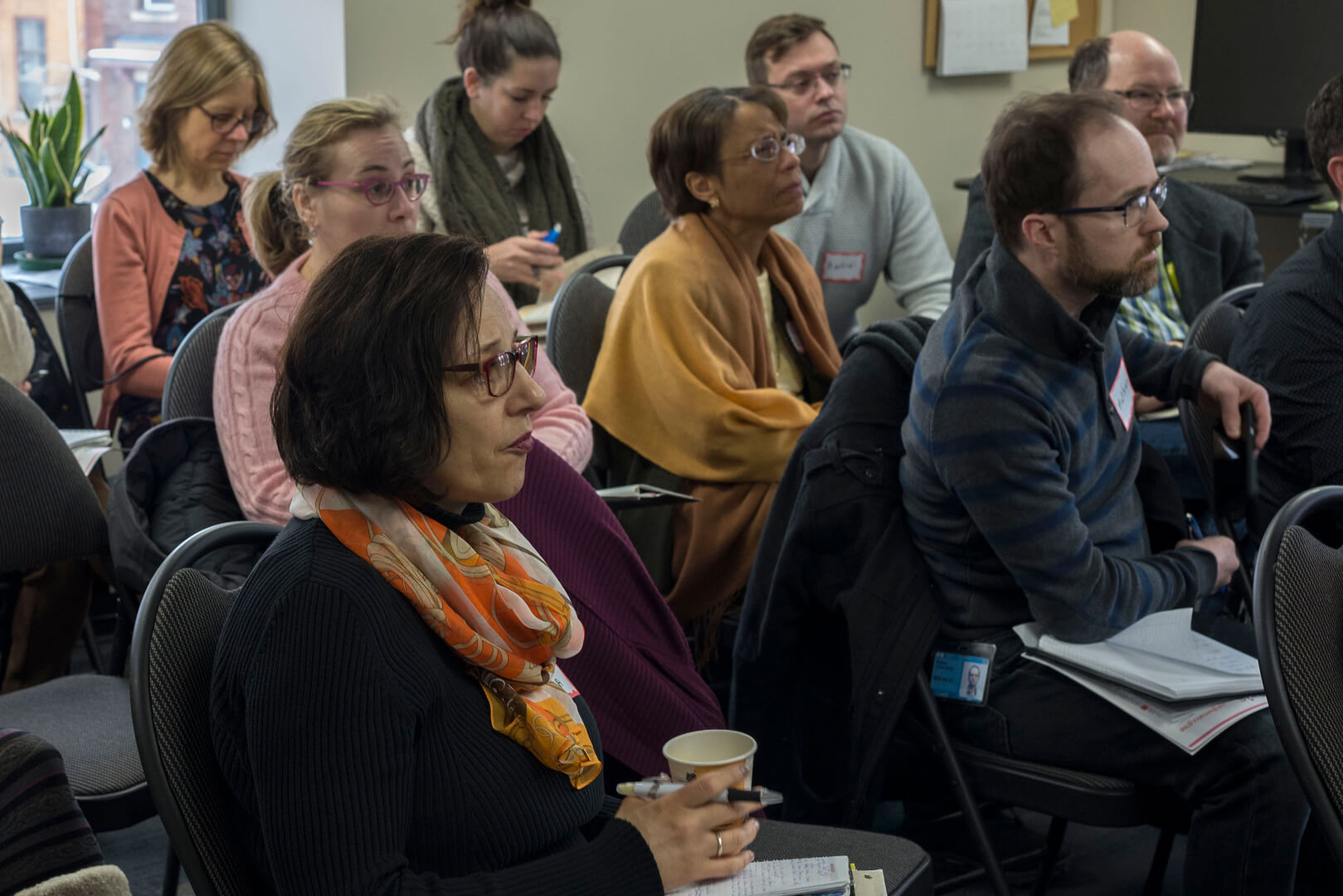
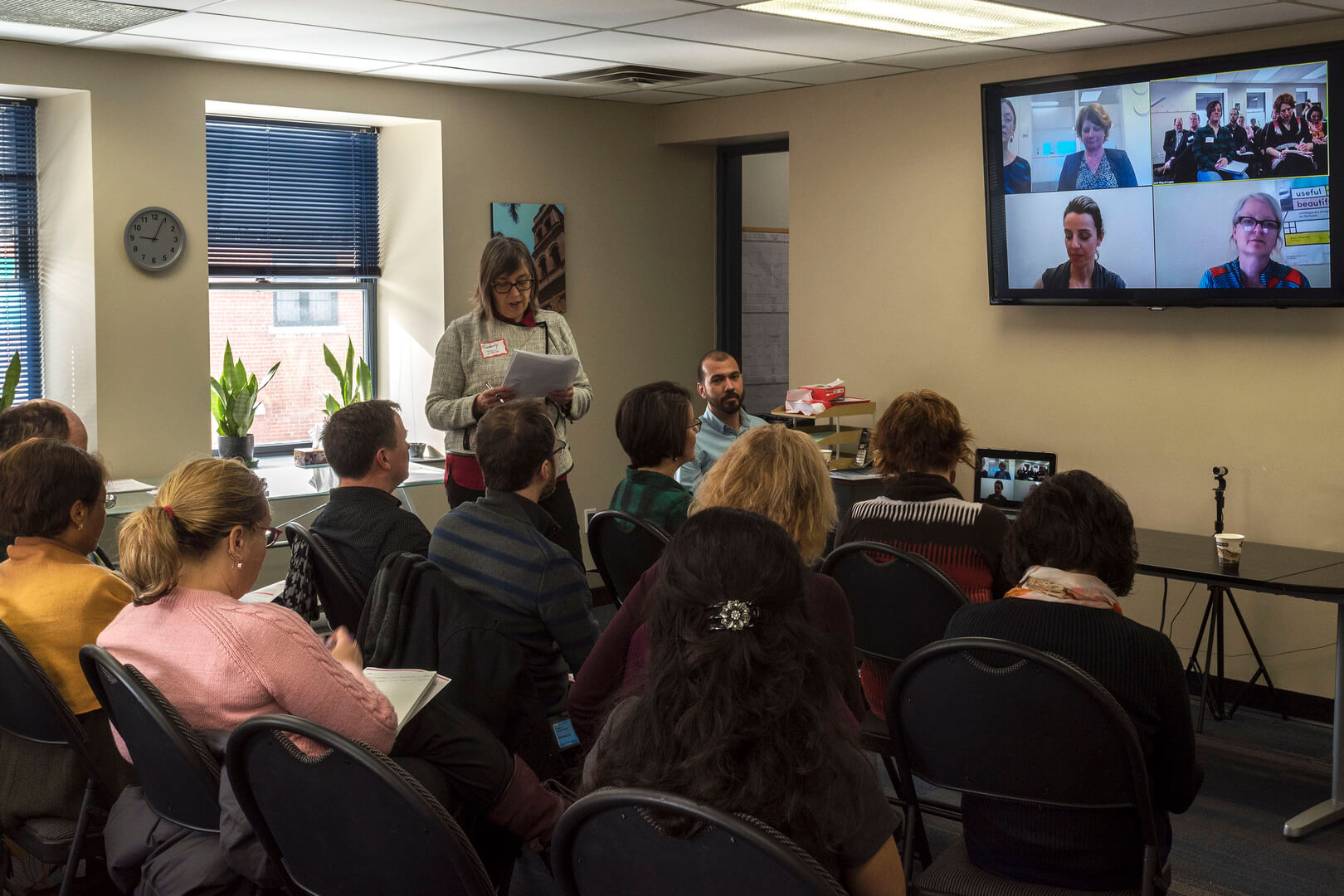
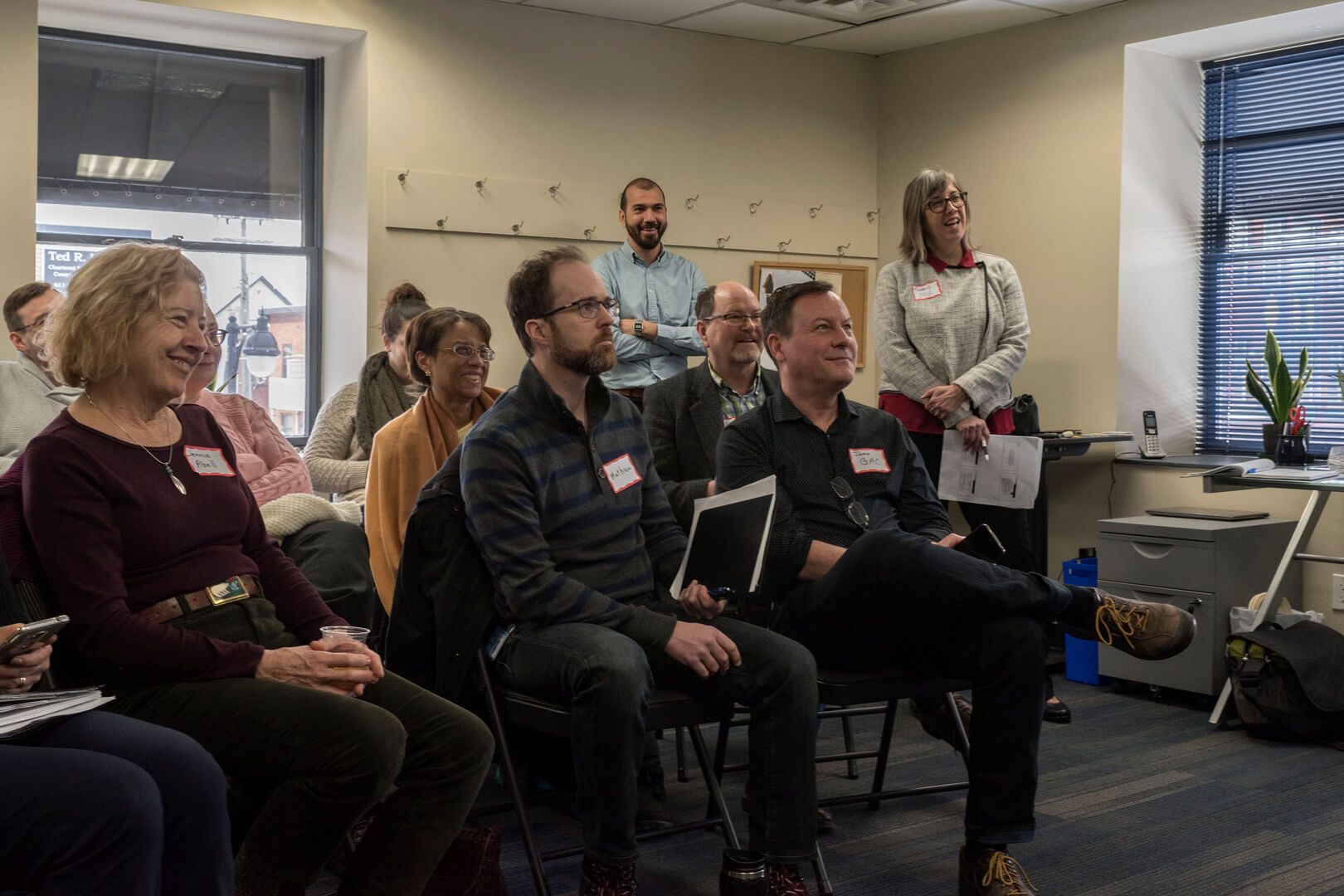
IS CANADA MOVING TOWARD A FEMINIST FOREIGN POLICY? IMPLICATIONS FOR THE WOMEN, PEACE AND SECURITY AGENDA.
Featuring guest speaker Beth Woroniak, International Consultant. June 2017
Is Canada moving toward a feminist foreign policy? Implications for the Women, Peace and Security Agenda Do we want a feminist foreign policy for Canada? There are multiple feminisms, so are there multiple feminist foreign policies? What are the current Canadian commitments regarding a feminist approach to foreign policy, defence policy and international assistance?
"WHERE ARE THE BOYS: A CONVERSATION AROUND SEXUAL AND GENDER-BASED VIOLENCE IN CONFLICT SETTINGS AND FRAGILE STATES"
Featuring guest speaker Tanya Zayed, Child Protection Consultant
JGG held a roundtable event called "Where are the boys: A conversation around sexual and gender-based violence in conflict settings and fragile states". During the talk, the following questions were addressed:
Does focusing on boys detract from gains made on women and girls' issues?
Does conflict transform gender norms, the definition of masculinity and the pathways from boyhood to manhood? If so, what are the implications for violence prevention and stability?
Is there a divide between policy and programming and how can we address the gaps?
How do we address sexual violence against boys in contexts where international standards conflict with cultural norms?

